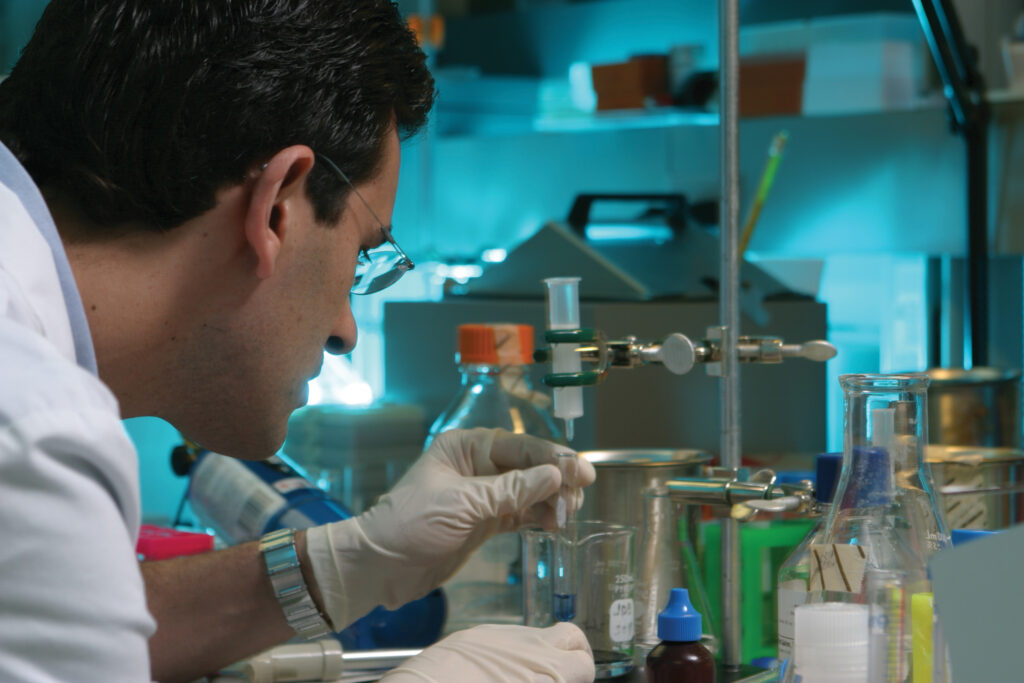Sarah Ford | October 20, 2015
Finding a Cure to the Most Rapidly Growing Chronic Disease of Our Time: Diabetes
Diabetes is the most rapidly growing chronic disease of our time. According to the CDC’s (Centers for Disease Control) National Diabetes Statistics Report for 2014, 29.1 million children and adults in the United States, or 9.3% of the population, have diabetes. Cases of diabetes have increased almost 13% over the last four years. A 2010 CDC study projected that as many as one of three U.S. adults could have diabetes by 2050 if current trends continue.
Diabetes is not only common and serious; it is also a very costly disease. Diabetes is costing the American people $245 billion each year. One out of every five U.S. federal health care dollars is spent treating people with diabetes. The average yearly health care costs for a person without diabetes is $2,560; for a person with diabetes, that figure soars to $11,744.
Finding a cure is more critical now than ever before. But, how do we go about solving this issue? For answers and insights, we turned to America’s Charities member, the Diabetes Research Institute Foundation.
How is your organization solving this problem?
The Diabetes Research Institute at the University of Miami Miller School of Medicine leads the world in cure-focused research. As the largest and most comprehensive research center dedicated to curing diabetes, the DRI is aggressively working to develop a biological cure by restoring natural insulin production and normalizing blood sugar levels without imposing other risks. Researchers have already shown that diabetes can be reversed through islet transplantation, with some study patients living without the need for insulin injections for more than a decade.
To build on this extraordinary progress and overcome the remaining challenges that limit islet transplantation to only the most severe cases of diabetes, our researchers are developing the DRI BioHub—a bioengineered mini-organ that mimics the native pancreas. As in the pancreas, the DRI BioHub will contain insulin-producing cells that sense blood sugar levels and release the precise amount of insulin needed in real time. To accomplish this, our multi-disciplinary teams of investigators are concentrating on three critical areas:
1. Site- creating an optimal environment for islets
2. Sustainability- restoring and maintaining natural insulin function without additional risks
3. Supply- developing an unlimited supply of insulin-producing cells
This past year, the DRI made significant progress in each of these areas. The components that comprise the BioHub are in various stages of development and testing in preclinical and clinical trials currently underway.
Most recently, we successfully transplanted insulin-producing cells into the first patient in a clinical trial testing the omentum, an apron-like lining inside the abdomen, as a new transplant site for these cells. The patient, Wendy Peacock, 43, from San Antonio, TX, has been freed from insulin injections in record time. She is now producing her own insulin naturally for the first time since being diagnosed with type 1 diabetes at age 17. These are the best early post-transplant results we’ve seen in any of our transplant recipients.
What can individuals and companies do to help?
Scientists at the DRI are doing all they can to move the DRI BioHub forward as quickly and efficiently as possible. Your support is an equally important aspect of bringing the BioHub toward clinical trials and ultimately making it available to the millions of children and adults who face the challenges of living with diabetes each day.
So, we’re asking you to join the thousands of other special individuals who are committed to doing everything in their power to cure this devastating disease. You can significantly impact the path to a cure for diabetes!
Our thanks to the Diabetes Research Institute Foundation for taking time to discuss their role in finding a cure for diabetes.
To learn more about their work, click here.
Contact America’s Charities to learn how your company can support nonprofits like the Diabetes Research Institute Foundation through employee giving and corporate social responsibility programs at your workplace.

Get Resources and Insights Straight To Your Inbox
Explore More Articles
Get Resources and Insights Straight To Your Inbox
Receive our monthly/bi-monthly newsletter filled with information about causes, nonprofit impact, and topics important for corporate social responsibility and employee engagement professionals, including disaster response, workplace giving, matching gifts, employee assistance funds, volunteering, scholarship award program management, grantmaking, and other philanthropic initiatives.




